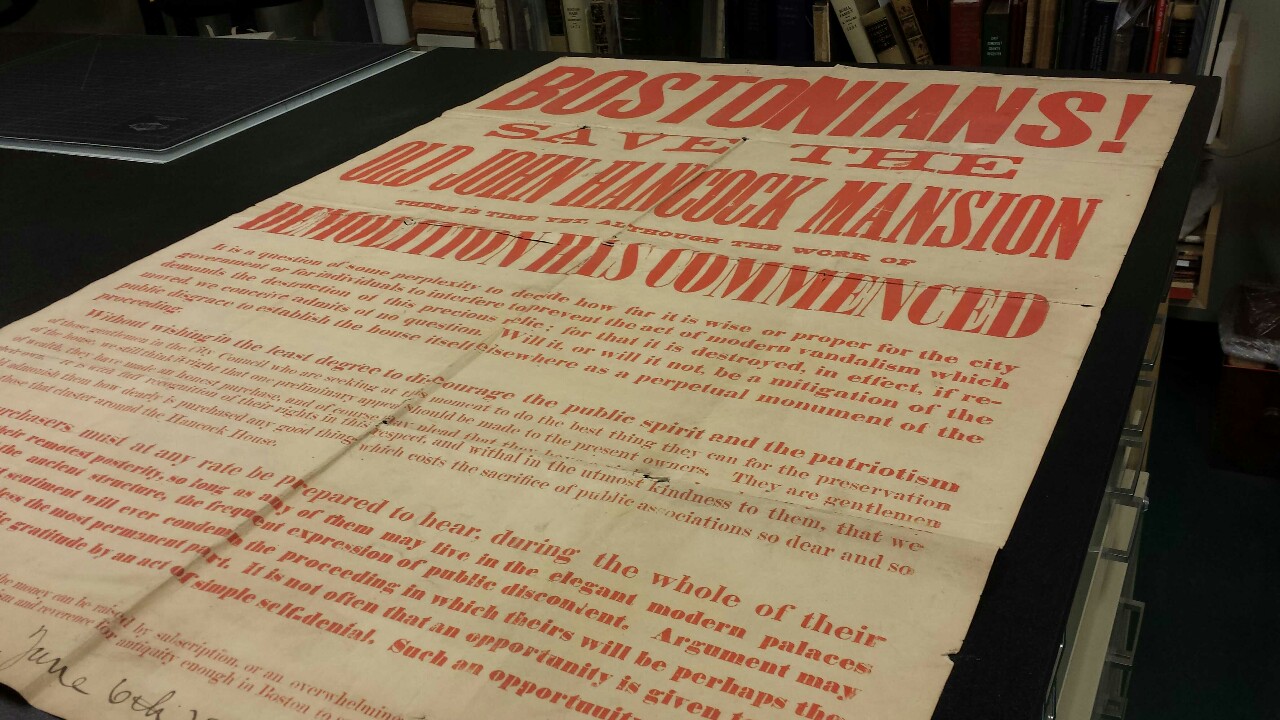One of the things I like most about my job at the Society is that, because we are such a small operation, we tackle a wonderful array of projects. For example, for the past month I have been cleaning and backing this 29” x 42” broadside. It was an announcement made/published by T.G.H.P. Burnham on 6 June 1863 to protest the already-begun demolition of the John Hancock mansion. Sadly, the protest amounted to just that; where the mansion once sat is now the west wing of the early twentieth-century addition to the Massachusetts State House. To my knowledge, the only surviving external piece of John Hancock’s home is the stairs, later incorporated into the embankment of Jamaica Pond and leading to the former Perkins estate. Continue reading Conserving some NEHGS treasures
Tag Archives: Spotlight
Sandwich and Eastham Town Records
 You know you are a genealogist when the highlight of your week is the delivery of two newly published volumes of town records! These are The Town Records of Eastham during the Time of Plymouth Colony, 1620-1692, and The Town Records of Sandwich during the Time of Plymouth Colony, 1620-1692, transcribed by Jeremy Dupertuis Bangs. Jeremy has been transcribing Plymouth Colony town records for decades, including the Scituate records published by NEHGS and the Marshfield records currently being serialized in The Mayflower Descendant by the Massachusetts Society of Mayflower Descendants. The Mayflower Descendant will also be publishing Bangs’ transcriptions of the Dartmouth and Bridgewater town records. Continue reading Sandwich and Eastham Town Records
You know you are a genealogist when the highlight of your week is the delivery of two newly published volumes of town records! These are The Town Records of Eastham during the Time of Plymouth Colony, 1620-1692, and The Town Records of Sandwich during the Time of Plymouth Colony, 1620-1692, transcribed by Jeremy Dupertuis Bangs. Jeremy has been transcribing Plymouth Colony town records for decades, including the Scituate records published by NEHGS and the Marshfield records currently being serialized in The Mayflower Descendant by the Massachusetts Society of Mayflower Descendants. The Mayflower Descendant will also be publishing Bangs’ transcriptions of the Dartmouth and Bridgewater town records. Continue reading Sandwich and Eastham Town Records
Still more thoughts on preparing to publish
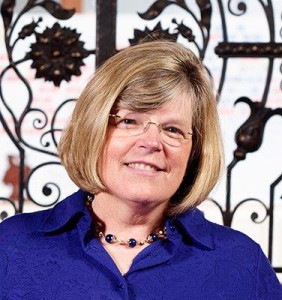 By phone, at seminars, and now at webinars, we field many questions from people who are interested in writing family histories. Here are a few of the most frequent questions we hear:
By phone, at seminars, and now at webinars, we field many questions from people who are interested in writing family histories. Here are a few of the most frequent questions we hear:
How do I get started? There’s no way around it: getting started can be difficult. You will have to shift mental gears. Take a step back, as if you’re zooming out with a camera, and begin thinking about your project as a potential manuscript, something different from your mass of research. Don’t wait until your research is done, or you’ll never get started. Just begin! Continue reading Still more thoughts on preparing to publish
The Lane School on Malaga Island
 Captain George W. Lane, a Christian missionary and a Civil War veteran, first visited Malaga Island in 1906. The island, located in the New Meadows River near Phippsburg, Maine, is now an uninhabited state preserve, but in Captain Lane’s time the island was the site of a small mixed-race community of fishermen. In the summer of 1906, Captain Lane and his family rowed almost every day from their summer home on Horse Island (now Harbor Island) to Malaga. The inhabitants were poor, and there were few opportunities for education. The Lanes changed that. Captain Lane led regular church services for the residents of Malaga Island, while his wife, Lucy (Holden) Lane, and their daughters started a school for the island’s children. Continue reading The Lane School on Malaga Island
Captain George W. Lane, a Christian missionary and a Civil War veteran, first visited Malaga Island in 1906. The island, located in the New Meadows River near Phippsburg, Maine, is now an uninhabited state preserve, but in Captain Lane’s time the island was the site of a small mixed-race community of fishermen. In the summer of 1906, Captain Lane and his family rowed almost every day from their summer home on Horse Island (now Harbor Island) to Malaga. The inhabitants were poor, and there were few opportunities for education. The Lanes changed that. Captain Lane led regular church services for the residents of Malaga Island, while his wife, Lucy (Holden) Lane, and their daughters started a school for the island’s children. Continue reading The Lane School on Malaga Island
Further thoughts on preparing your genealogical project for publication
 In a recent blog post on preparing a project for publication, Scott Steward targeted that essential shift in thinking that must occur as you translate your research project into a writing project. And he pointed out how important it is to write a table of contents . . . and a title.
In a recent blog post on preparing a project for publication, Scott Steward targeted that essential shift in thinking that must occur as you translate your research project into a writing project. And he pointed out how important it is to write a table of contents . . . and a title.
After talking at length with attendees at our Writing and Publishing Seminar about their projects, I realized that TOCs and titles figured large in those conversations. So here are three more thoughts on the topic: Continue reading Further thoughts on preparing your genealogical project for publication
Using the HathiTrust Digital Library
 I have access to every book, microfilm and manuscript in the NEHGS library, but because I don’t actually work in the building (I work from home, generally on a 3 pm to 3 am schedule), I have to rely on the staff at the library to make copies. Fortunately, with so many books available on-line these days, I have been accumulating my own mini-digital library using google, archive.org, and openlibrary.org. Each of these has limitations of one kind or another – e.g., poor quality of digitizing, page numbers that don’t match, lack of indexing, wait time to borrow, inability to print, etc. Continue reading Using the HathiTrust Digital Library
I have access to every book, microfilm and manuscript in the NEHGS library, but because I don’t actually work in the building (I work from home, generally on a 3 pm to 3 am schedule), I have to rely on the staff at the library to make copies. Fortunately, with so many books available on-line these days, I have been accumulating my own mini-digital library using google, archive.org, and openlibrary.org. Each of these has limitations of one kind or another – e.g., poor quality of digitizing, page numbers that don’t match, lack of indexing, wait time to borrow, inability to print, etc. Continue reading Using the HathiTrust Digital Library
Traditional research techniques – and new ones
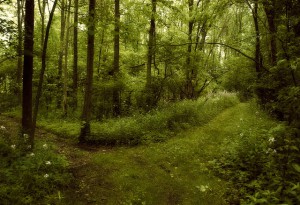 Robert Frost’s famous poem, The Road Not Taken, begins with his contemplation of “two roads diverg[ing] in a yellow wood,” and his indecision about whether to follow one path or the other. In the end, the author chooses what he deems “the path less traveled by.” Yet one must wonder whether another option was available? What about a possible third (or fourth or fifth) road? What about roads that have yet to be created? Sometimes, when conducting genealogical research, one must be aware of the possibility of other roads, as the mechanisms for knowing whether they exist may not yet have been developed. Occasionally, then, one must be willing to get off the known path to explore other, hidden roads. Continue reading Traditional research techniques – and new ones
Robert Frost’s famous poem, The Road Not Taken, begins with his contemplation of “two roads diverg[ing] in a yellow wood,” and his indecision about whether to follow one path or the other. In the end, the author chooses what he deems “the path less traveled by.” Yet one must wonder whether another option was available? What about a possible third (or fourth or fifth) road? What about roads that have yet to be created? Sometimes, when conducting genealogical research, one must be aware of the possibility of other roads, as the mechanisms for knowing whether they exist may not yet have been developed. Occasionally, then, one must be willing to get off the known path to explore other, hidden roads. Continue reading Traditional research techniques – and new ones
One hundred posts on Vita Brevis
In a few days, Vita Brevis will have published one hundred blog posts. Thinking back to about a year ago, when the subject of the blog was first broached, I can say that I only thought through the mechanics of preparing and posting the first half-dozen; everything after that seemed quite remote!
What can one say about the blog, circa May 2014? After a little more than five months in existence, it has played host to thirty-four bloggers, writing on topics as disparate as RootsTech 2014, the love troubles of William Norton in 1649, the antics of the Puddingstone Club in the early twentieth century, how best to use the NEHGS catalogue from home, an historical image Smack Down! between Google and Bing, and a list of the ships in the Winthrop Fleet in 1629–30. Continue reading One hundred posts on Vita Brevis
The NEHGS library collection, 2013-2014
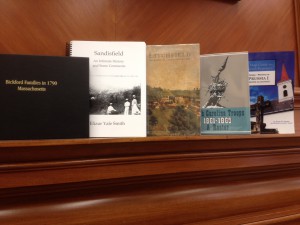 In my role as Technical Services Manager for the NEHGS library, one of my responsibilities is to develop and maintain the library collection. The library has a diverse collection of print and online books, microfilm, cd-roms, and databases to help with your genealogical research.
In my role as Technical Services Manager for the NEHGS library, one of my responsibilities is to develop and maintain the library collection. The library has a diverse collection of print and online books, microfilm, cd-roms, and databases to help with your genealogical research.
Some facts about the current collection, which is searchable through our library catalog (please note, these numbers do not include the contents of our R. Stanton Avery Special Collections): Continue reading The NEHGS library collection, 2013-2014
The Eliot Snider Papers
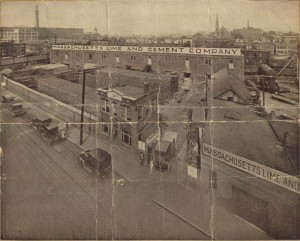 The AJHS–NEA archives are filled with stories of individuals and families who have affected the Jewish communities of Greater Boston and New England. Eliot Snider is the focus of one such collection.
The AJHS–NEA archives are filled with stories of individuals and families who have affected the Jewish communities of Greater Boston and New England. Eliot Snider is the focus of one such collection.
Four years before Eliot was born, his father – Harry, a Jewish immigrant from Lithuania – founded the Massachusetts Lime and Cement Company, later re-named Massachusetts Lumber, in Cambridge, Massachusetts. Continue reading The Eliot Snider Papers
